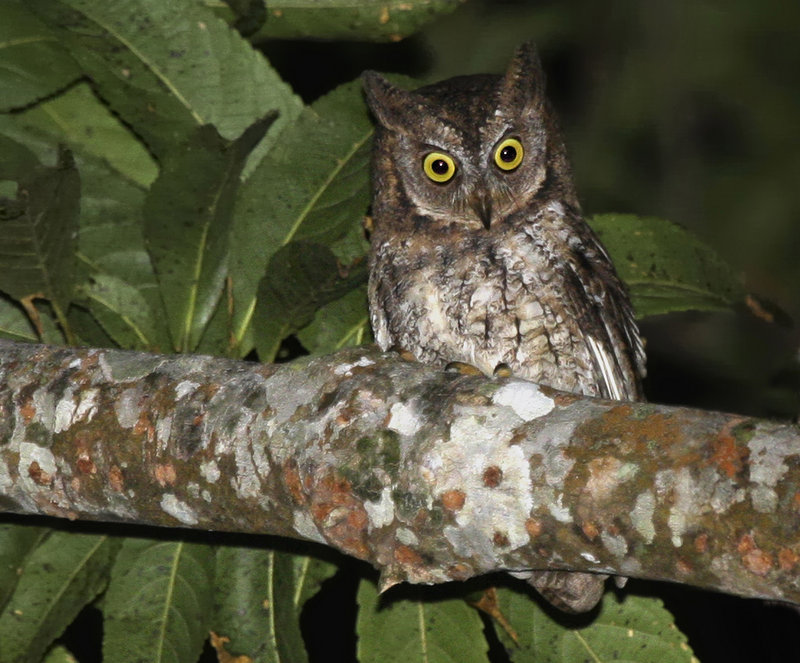JAKARTA, Indonesia – Researchers looking for a nocturnal bird in Indonesia accidentally verified a new species of owl – one that has a distinct song and is believed to exist nowhere else in the world.
The Rinjani Scops owl was first identified in 2003 and has since been spotted only on Lombok island, about 15 miles from the popular resort island of Bali. The findings were published Wednesday in the online journal PLOS ONE.
The small owl, with brown and white feathers and big golden eyes, had been confused with a similar-looking species for more than a century. But scientists from Sweden and the United States, who were visiting the island doing separate research on another nocturnal bird, both recorded the Rinjani Scops owl’s vocalizations. They noticed that its whistled note was entirely different from other songs, including that of the widespread Moluccan Scops owl.
“I am surprised that the true identity of this bird has remained hidden from the scientific world for so long,” George Sangster, lead author from the Swedish Museum of Natural History, said in an email. “The Rinjani Scops owl is quite common and can be found on various parts of the island. It is also very vocal, so it is hard to miss.”
He said the discovery was not published for 10 years due to the work needed to verify the finding.
The researchers reviewed all previous work and museum specimens dating to 1896. They found a report mentioning the Rinjani Scops owl’s tone, which differs from the barking cry of the Moluccan Scops owl. However, plumage, size and shape were primarily used to identify species until the late 1970s when vocalizations were added. Lombok also remained less visited by bird researchers than other parts of Indonesia, which may explain why it took longer for the Rinjani Scops owl to be identified.
“Now that there is a beautiful owl known only from this island, we hope that more bird watchers will visit Lombok,” Sangster said. “Ornithologists have long patted themselves on the back, believing that the taxonomy of birds is ‘almost complete.’ With each new discovery, this becomes less credible.”
Send questions/comments to the editors.



Success. Please wait for the page to reload. If the page does not reload within 5 seconds, please refresh the page.
Enter your email and password to access comments.
Hi, to comment on stories you must . This profile is in addition to your subscription and website login.
Already have a commenting profile? .
Invalid username/password.
Please check your email to confirm and complete your registration.
Only subscribers are eligible to post comments. Please subscribe or login first for digital access. Here’s why.
Use the form below to reset your password. When you've submitted your account email, we will send an email with a reset code.